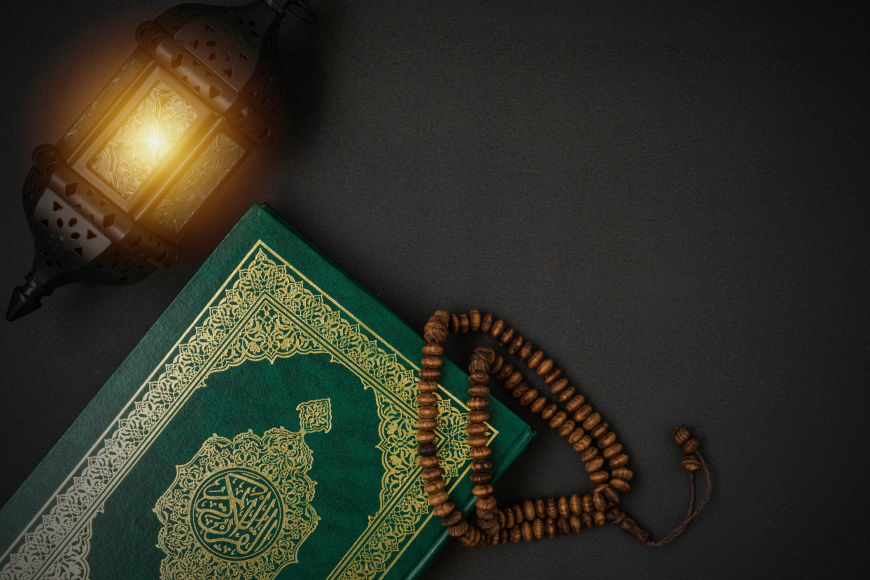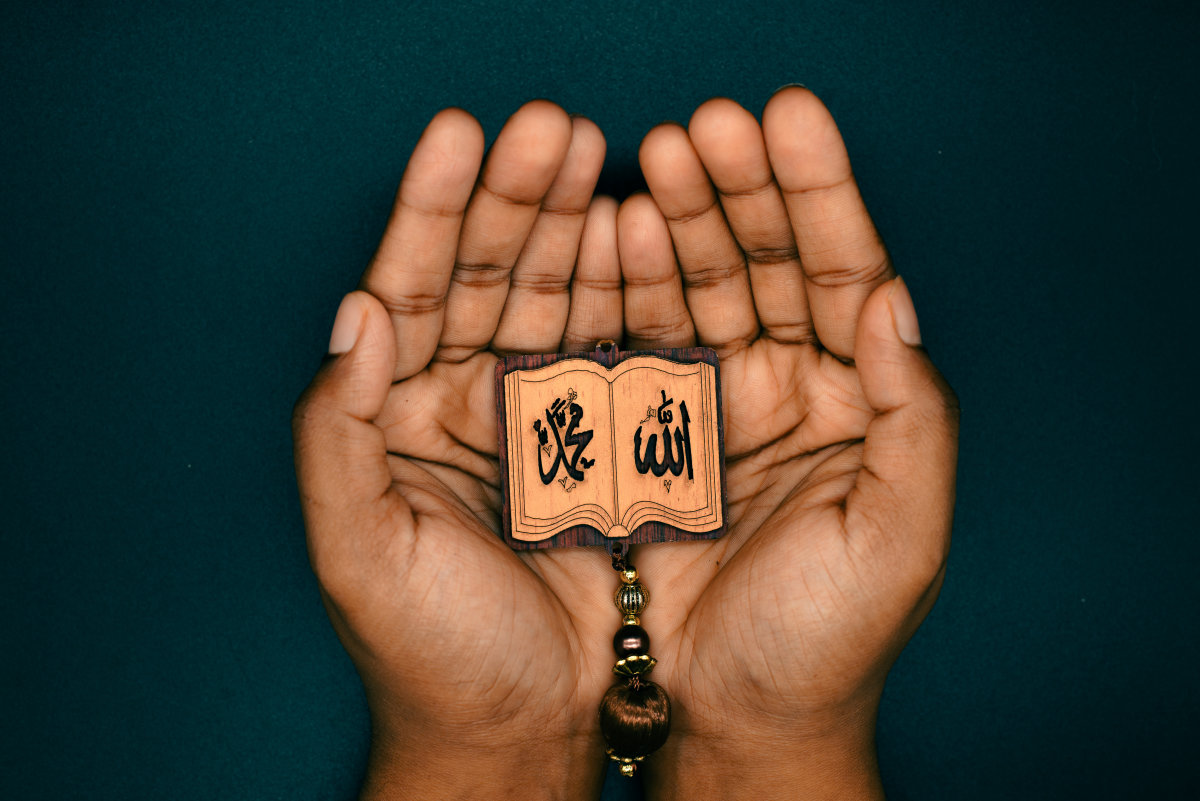
In Islam, the 99 Names of Allah, known as Asma'ul Husna, represent the divine attributes and qualities of God. These names provide insight into Allah's essence and actions, allowing believers to cultivate a deeper relationship with their Creator. Each name reflects a unique aspect of Allah’s nature, offering guidance, comfort, and inspiration. Understanding and meditating upon these names is a vital part of Islamic spirituality, enriching one's faith and connection with God.

Why Learn the 99 Names of Allah and How to Remember Them
Learning and memorizing the 99 Names of Allah is highly recommended for every Muslim, as it fosters a profound connection with Allah and enhances spiritual growth. Each name represents an attribute of Allah, and by reflecting on these names, believers can appreciate the majesty, mercy, and wisdom of their Creator. Knowing these names is not merely an intellectual exercise but a way to internalize the qualities that Muslims strive to emulate in their own lives.
To effectively learn and incorporate these names into daily worship, the use of rosaries, also known as prayer beads or "misbaha", is highly beneficial. Rosaries help in counting the names, ensuring a systematic and focused approach during recitation. The traditional Islamic rosary consists of 99 beads, each corresponding to one of Allah's names, allowing believers to remember and reflect upon each attribute while reciting the names in sequence. This practice not only aids in memorization but also enhances concentration during prayer, making the spiritual experience more immersive and meaningful.
Incorporating the rosary into daily prayers and meditation sessions encourages mindfulness and provides a tangible way to connect with the divine attributes of Allah. By regularly using the rosary, Muslims can ensure that the 99 Names become an integral part of their worship and daily life, leading to a deeper understanding of Allah's nature and a stronger spiritual bond with their Creator.
- Ar-Rahman (الرحمن) - The Most Merciful: This name emphasizes Allah's boundless mercy.
- Ar-Rahim (الرحيم) - The Most Compassionate: Allah's compassion encompasses all creatures.
- Al-Malik (الملك) - The King: Allah is the sovereign ruler of the universe.
- Al-Quddus (القدوس) - The Most Sacred: Allah is pure and free from all defects.
- As-Salam (السلام) - The Source of Peace: Allah is the source of peace and safety.
- Al-Mu’min (المؤمن) - The Guarantor: Allah provides security and faith.
- Al-Muhaymin (المهيمن) - The Guardian: Allah watches over and protects all.
- Al-Aziz (العزيز) - The Almighty: Allah is mighty and powerful.
- Al-Jabbar (الجبار) - The Compeller: Allah enforces His will on creation.
- Al-Mutakabbir (المتكبر) - The Supreme: Allah is above all attributes of His creation.
- Al-Khaliq (الخالق) - The Creator: Allah is the one who creates from nothing.
- Al-Bari’ (البارئ) - The Evolver: Allah brings about creation in its perfect form.
- Al-Musawwir (المصور) - The Fashioner: Allah gives everything its shape and form.
- Al-Ghaffar (الغفار) - The Forgiving: Allah repeatedly forgives sins.
- Al-Qahhar (القهار) - The Subduer: Allah has absolute power and control.
- Al-Wahhab (الوهاب) - The Bestower: Allah is generous in giving gifts.
- Ar-Razzaq (الرزاق) - The Provider: Allah provides sustenance for all creation.
- Al-Fattah (الفتاح) - The Opener: Allah grants victory and success.
- Al-Alim (العليم) - The All-Knowing: Allah is aware of all things.
- Al-Qabid (القابض) - The Withholder: Allah takes away as He wills.
- Al-Basit (الباسط) - The Expander: Allah extends provision and mercy.
- Al-Khafid (الخافض) - The Reducer: Allah lowers whom He wills.
- Ar-Rafi’ (الرافع) - The Exalter: Allah raises whom He wills.
- Al-Mu’izz (المعز) - The Honourer: Allah grants honour to whom He wills.
- Al-Mudhill (المذل) - The Humiliator: Allah disgraces whom He wills.
- As-Sami’ (السميع) - The All-Hearing: Allah hears all sounds and prayers.
- Al-Basir (البصير) - The All-Seeing: Allah sees all that is visible and invisible.
- Al-Hakam (الحكم) - The Judge: Allah is the ultimate judge of all matters.
- Al-‘Adl (العدل) - The Just: Allah is just in His decisions and actions.
- Al-Latif (اللطيف) - The Subtle: Allah is kind and gracious.
- Al-Khabir (الخبير) - The All-Aware: Allah is aware of all things, open and secret.
- Al-Halim (الحليم) - The Forbearing: Allah is patient and tolerant.
- Al-Azim (العظيم) - The Magnificent: Allah is glorious and grand.
- Al-Ghafur (الغفور) - The Forgiving: Allah forgives all sins.
- Ash-Shakur (الشكور) - The Appreciative: Allah rewards good deeds generously.
- Al-Ali (العلي) - The Most High: Allah is exalted above all.
- Al-Kabir (الكبير) - The Most Great: Allah is infinitely great.
- Al-Hafiz (الحفيظ) - The Preserver: Allah protects all that exists.
- Al-Muqit (المقيت) - The Sustainer: Allah provides for and sustains His creation.
- Al-Hasib (الحسيب) - The Reckoner: Allah takes account of all actions.
- Al-Jalil (الجليل) - The Majestic: Allah is majestic and full of honor.
- Al-Karim (الكريم) - The Generous: Allah is generous and benevolent.
- Ar-Raqib (الرقيب) - The Watchful: Allah watches over all things.
- Al-Mujib (المجيب) - The Responsive: Allah responds to prayers and supplications.
- Al-Wasi’ (الواسع) - The All-Encompassing: Allah's knowledge and mercy encompass everything.
- Al-Hakim (الحكيم) - The Wise: Allah's wisdom is perfect.
- Al-Wadud (الودود) - The Loving: Allah is loving and affectionate.
- Al-Majid (المجيد) - The Glorious: Allah is full of glory and honor.
- Al-Ba’ith (الباعث) - The Resurrector: Allah will raise the dead on the Day of Judgment.
- Ash-Shahid (الشهيد) - The Witness: Allah witnesses everything.
- Al-Haqq (الحق) - The Truth: Allah is the absolute truth.
- Al-Wakil (الوكيل) - The Trustee: Allah is the best disposer of affairs.
- Al-Qawiyy (القوي) - The Strong: Allah is all-powerful and strong.
- Al-Matin (المتين) - The Firm: Allah is firm and steadfast.
- Al-Waliyy (الولي) - The Protecting Friend: Allah is a friend and protector of the righteous.
- Al-Hamid (الحميد) - The Praiseworthy: Allah is deserving of all praise.
- Al-Muhsi (المحصي) - The Accounter: Allah takes account of all things.
- Al-Mubdi’ (المبدئ) - The Originator: Allah initiates creation.
- Al-Mu’id (المعيد) - The Restorer: Allah restores life after death.
- Al-Muhyi (المحيي) - The Giver of Life: Allah grants and sustains life.
- Al-Mumit (المميت) - The Creator of Death: Allah takes away life.
- Al-Hayy (الحي) - The Ever-Living: Allah is eternally alive.
- Al-Qayyum (القيوم) - The Self-Sustaining: Allah sustains everything.
- Al-Wajid (الواجد) - The Finder: Allah is the perceiver of all existence.
- Al-Majid (الماجد) - The Noble: Allah is full of honor and dignity.
- Al-Wahid (الواحد) - The One: Allah is the only one and only God has no alternative. He is the sole originator of all existence.
- AL-Ahad (ٱلْأَحَد) - The Sole One: Incomparable, unequal and indivisible.
- As-Samad (الصمد) - The Eternal: Allah is eternal and absolute.
- Al-Qadir (القادر) - The Omnipotent: Allah is capable of doing anything.
- Al-Muqtadir (المقتدر) - The Determiner: Allah has power over everything.
- Al-Muqaddim (المقدم) - The Expediter: Allah brings forward whom He wills.
- Al-Mu’akhkhir (المؤخر) - The Delayer: Allah delays whom He wills.
- Al-Awwal (الأول) - The First: Allah is the first with no beginning.
- Al-Akhir (الأخر) - The Last: Allah is the last with no end.
- Az-Zahir (الظاهر) - The Manifest: Allah is evident by His signs.
- Al-Batin (الباطن) - The Hidden: Allah is hidden from physical eyes.
- Al-Wali (الوالي) - The Governor: Allah governs all affairs.
- Al-Muta’ali (المتعالي) - The Most Exalted: Allah is above all attributes.
- Al-Barr (البر) - The Benefactor: Allah is kind and gracious.
- At-Tawwab (التواب) - The Accepter of Repentance: Allah accepts repentance from His servants.
- Al-Muntaqim (المنتقم) - The Avenger: Allah takes revenge on wrongdoers.
- Al-‘Afuww (العفو) - The Pardoner: Allah pardons sins and grants forgiveness.
- Ar-Ra’uf (الرؤوف) - The Compassionate: Allah is full of pity and compassion.
- Malik-ul-Mulk (مالك الملك) - The Owner of Sovereignty: Allah is the owner of all sovereignty.
- Dhul-Jalal wal-Ikram (ذو الجلال و الإكرام) - Lord of Glory and Honor: Allah is full of majesty and honor.
- Al-Muqsit (المقسط) - The Just: Allah is fair and equitable.
- Al-Jami’ (الجامع) - The Gatherer: Allah will gather all creatures on the Day of Judgment.
- Al-Ghaniyy (الغني) - The Self-Sufficient: Allah is free of need.
- Al-Mughni (المغني) - The Enricher: Allah enriches His creation.
- Al-Mani’ (المانع) - The Preventer: Allah prevents harm and evil.
- Ad-Darr (الضار) - The Creator of Harm: Allah can bring harm for a purpose.
- An-Nafi’ (النافع) - The Creator of Good: Allah brings benefit to His creation.
- An-Nur (النور) - The Light: Allah is the light of the heavens and the earth.
- Al-Hadi (الهادي) - The Guide: Allah guides to the right path.
- Al-Badi’ (البديع) - The Incomparable: Allah is unique in His creation.
- Al-Baqi (الباقي) - The Everlasting: Allah is everlasting without end.
- Al-Warith (الوارث) - The Inheritor: Allah is the inheritor of all.
- Ar-Rashid (الرشيد) - The Guide to the Right Path: Allah directs to the right path.
- As-Sabur (الصبور) - The Patient: Allah is patient and forbearing.
The 99 Names of Allah offer a profound way to understand and connect with the Divine. Each name reveals a unique aspect of Allah's nature, providing guidance and inspiration for believers. The use of rosaries in prayers, particularly for reciting the 99 Names, enhances spiritual practices by promoting focus, discipline, and tranquility. By integrating these names and practices into daily life, Muslims can deepen their faith and foster a closer relationship with Allah, experiencing the boundless mercy and guidance He offers.




 Jewelry
Jewelry Silver amber jewelry
Silver amber jewelry Amber pictures
Amber pictures Souvenirs
Souvenirs